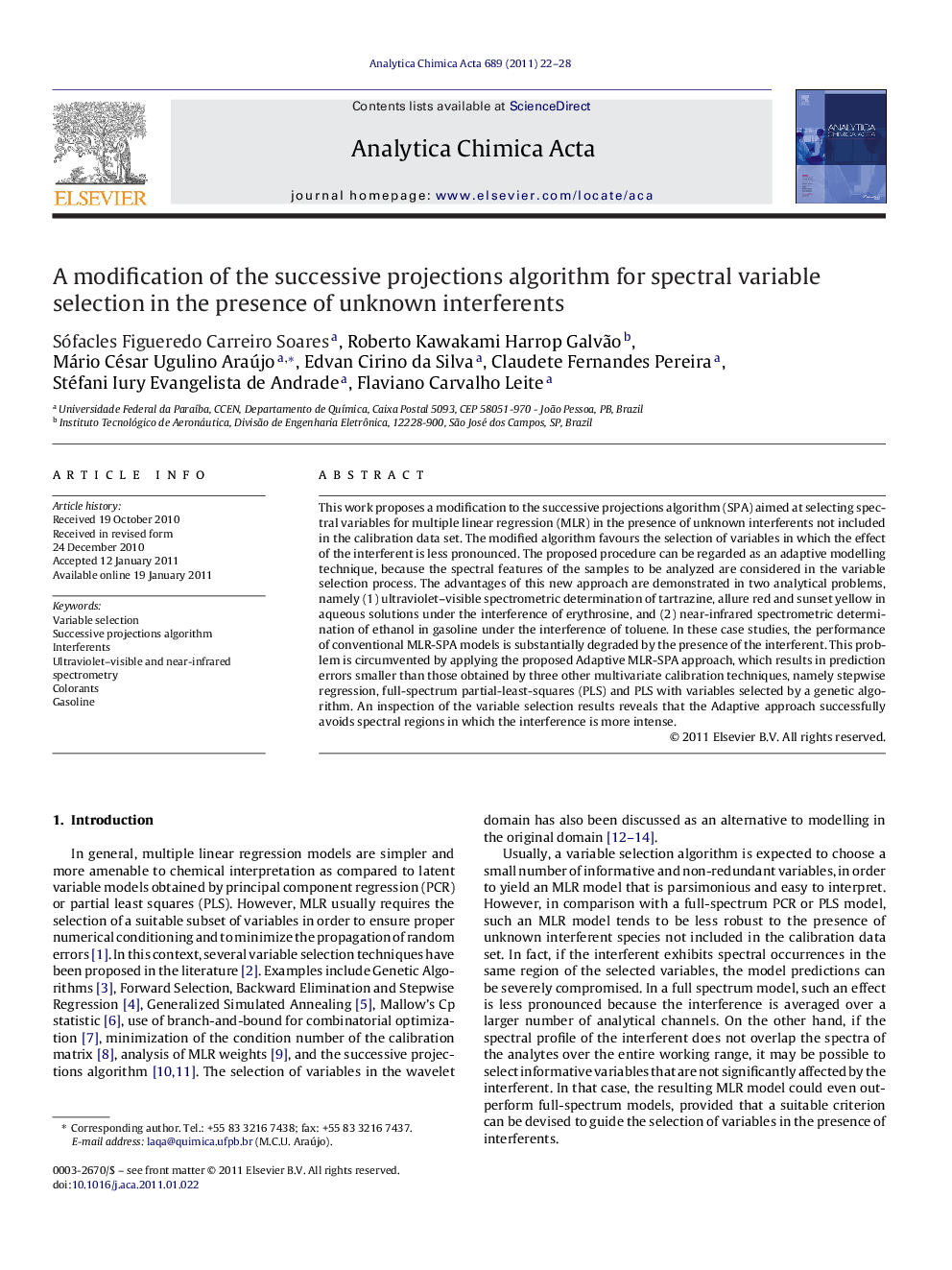| Article ID | Journal | Published Year | Pages | File Type |
|---|---|---|---|---|
| 1167308 | Analytica Chimica Acta | 2011 | 7 Pages |
This work proposes a modification to the successive projections algorithm (SPA) aimed at selecting spectral variables for multiple linear regression (MLR) in the presence of unknown interferents not included in the calibration data set. The modified algorithm favours the selection of variables in which the effect of the interferent is less pronounced. The proposed procedure can be regarded as an adaptive modelling technique, because the spectral features of the samples to be analyzed are considered in the variable selection process. The advantages of this new approach are demonstrated in two analytical problems, namely (1) ultraviolet–visible spectrometric determination of tartrazine, allure red and sunset yellow in aqueous solutions under the interference of erythrosine, and (2) near-infrared spectrometric determination of ethanol in gasoline under the interference of toluene. In these case studies, the performance of conventional MLR-SPA models is substantially degraded by the presence of the interferent. This problem is circumvented by applying the proposed Adaptive MLR-SPA approach, which results in prediction errors smaller than those obtained by three other multivariate calibration techniques, namely stepwise regression, full-spectrum partial-least-squares (PLS) and PLS with variables selected by a genetic algorithm. An inspection of the variable selection results reveals that the Adaptive approach successfully avoids spectral regions in which the interference is more intense.
